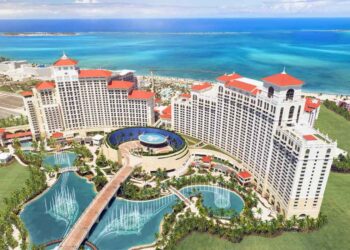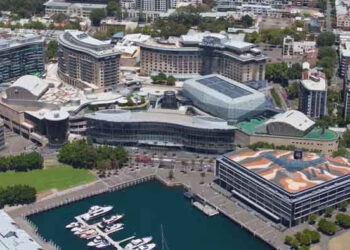There was much speculation that the tropical island would challenge Hong Kong’s turf supremacy or the baccarat powerhouses of Macau after Beijing gave it the green light to explore the lottery industry.
“It’s not possible that we will build a casino or a horseracing track,” Wei Liucheng, the provincial party secretary, said on the sidelines of a press conference in Beijing yesterday. “And we will need preparation time before launching the lottery scheme.”
State Council documents issued last Thursday said Hainan could “explore sports lottery schemes and real-time sports betting for major international events” – novelties on the mainland, where only government-sanctioned lottery schemes are allowed.
This immediately sparked talk in mainland media that Hainan could host the mainland’s first legal casino.
Hainan governor Luo Baoming said the central government initiative would allow more room for the province to try new approaches to lotteries not seen elsewhere on the mainland.
“This is a preferential policy that allows us to enhance Hainan’s tourism potential. The policy is meant to be exploratory, meaning we will have more leeway than other provinces in trying new things,” Luo said at the press conference.
“But this doesn’t mean we could breach any laws.”
The idea of building a casino in Hainan has been floated for years. In the 1990s, international hotel groups including Club Med and MGM signed memorandums of understanding with the local government to explore the possibility of building casinos on the island.
In 1994, a vice-mayor of Hainan’s Sanya city said local authorities had considered building a casino resort on Xidao, an isle of two square kilometres off the coast.
None of the plans have materialised. Nevertheless, Hainan remains a hot spot for illegal gambling.
In March last year, a clash between two villages in Dongfang city that left one person dead and six others injured was blamed on illegal casinos, according to the Xinhua-run Outlook magazine.
State-run lotteries are the only sanctioned form of gambling on the mainland, with most of the revenue from them in theory spent on improving welfare. The government has largely outlawed gambling, despite the long-standing and widespread existence of underground casinos and illegal betting services across the country.
National People’s Congress delegates and critics have suggested legalising gambling, but the idea has met with persistent opposition stemming from concerns over possible social problems.
In its operation of lottery schemes, the government is caught between the prospect of increasing its revenues and managing problems such as gambling addiction.
In February 2008, the popularity of lotteries led authorities to ask parlours to lower bet limits and shorten their opening hours.
Zeng Zhonglu, a gaming analyst from Macau Polytechnic Institute, said Hainan was likely to come up with new games such as a lottery slot – a combination of a slot machine and lottery – in order to attract tourists.
“Another possibility is to allow hotels designated for foreigners to set up gambling facilities that only foreigners can use,” Zeng said.
With the central government’s blessing, Hainan’s plan to expand its lottery schemes would face less uncertainty than in other parts of the mainland, he said.
“Hainan will serve as a test bed for these new games. If they turn out well without causing too many negative effects, the government may expand them to other places,” Zeng said.
The Hainan officials also sought to allay concerns from Hong Kong and Macau that the plan to expand lottery games and launch duty-free stores would pose a threat to the two special administrative regions.
“Duty-free shopping is just beginning in Hainan … but this will complement Hong Kong’s role as a shopper’s paradise,” Luo said.
He said the island would have to raise its standards and tackle persistent problems such as poor service and scams targeting tourists, before it could become an “international tourist island”.
South China Morning Post






























